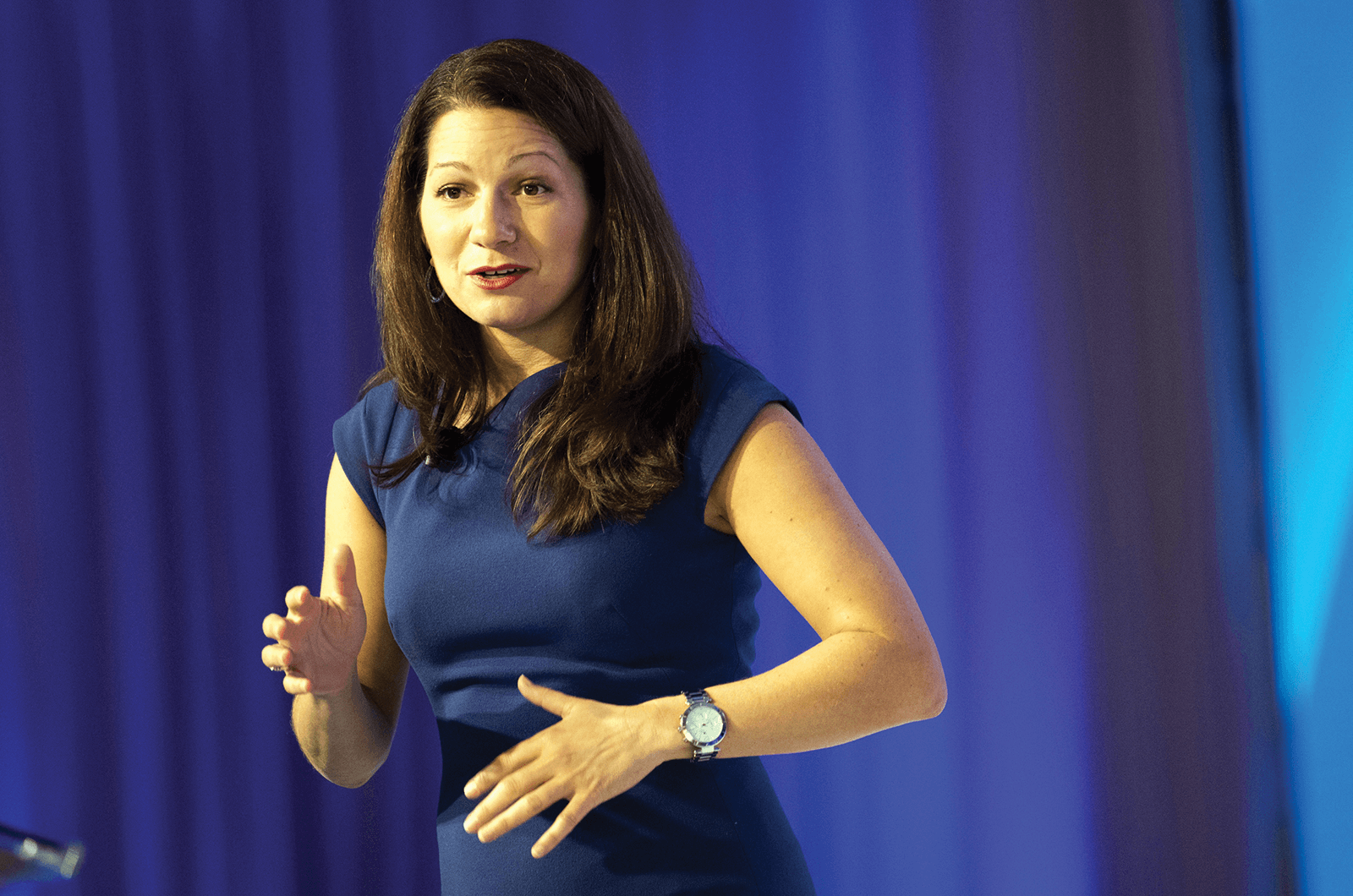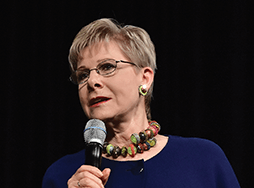 Allison Shapira
Allison ShapiraIn Toastmasters club speeches, we tend to choose topics we are passionate about—such as our hobbies or our families—or have an interest in learning. However, many of us struggle to keep that same energy and enthusiasm when we go back to the office and have to deliver an engaging speech about something corporate or bureaucratic.
When my team and I lead trainings in public speaking, we ask speakers one particular question before they prepare a speech or presentation to help them find their sense of purpose. Whether we are leading trainings on-site in Asia, Africa, Europe, the Middle East, or North and South America, we always ask: “Why you?”
“Why you?” is one of the most important and least utilized questions in public speaking anywhere in the world. That question unlocks your authentic voice, builds your confidence to speak, and engages your audience, especially in a professional context.
It isn’t, “Why are you qualified?” or “What is your title?” Those are external validators. Rather, it’s “Why do you care … about the subject of your speech, about the work you do, or about the impact you have on others?”
Your “why you?” is probably not “so I can make more money” or “so I can look good in front of my boss.” It’s deeper than that. It comes from a sense of purpose around why you do what you do. It’s what attracted you to your industry to begin with, or what keeps you there 20 years later. It’s tied to a sense of pride in your work.
Uncovering Your “Why You?”
Sometimes “why you?” can be hard to find. I remember an experience I had many years ago coaching my friend Patrick, whom I met while dancing tango in Washington, D.C. On the dance floor, Patrick was a gregarious man with a fabulous sense of humor and boundless energy.
In his day job, Patrick worked in real estate development. One day, he asked me to coach him on an upcoming presentation to a community board. During our session, I sat back and waited for “Tango Patrick” to regale me with his presentation just like he did on the dance floor. But when Patrick stood up, he changed completely. His shoulders slumped, his smile drooped, and he sighed loudly while leaning on one hip and weakly gesturing at his slides behind him. He was afraid that he was a boring speaker.
One of the best places to include your “why you” is in the beginning of your speech or presentation.
When we talked about “why you?” Patrick came to a startling realization. I asked him why he cared about his work. It turns out, he didn’t. He hated his job. He mistrusted his boss. He didn’t like
the industry.
He wasn’t a boring speaker; he was just bored.
If you are bored with your subject or unhappy at your job, it’s going to be difficult to give a powerful speech. In those cases, you have a couple of options. You can change careers, which is what Patrick did: He quit his job and realized his dream to revitalize an abandoned building in his city. But maybe you have three kids to support and a mortgage to pay. Instead of searching for what you’re passionate about, think about what you do like about your work. Find something that gives you a sense of pride or purpose: Maybe you like solving puzzles for clients, or perhaps you are passionate about mentoring others. If you need to give a financial analysis presentation, instead of just talking about the numbers, talk about what those numbers mean to your audience.
Let’s contrast Patrick’s story with that of another client named Stacey. I was helping Stacey prepare for an upcoming sales call when I asked her, “Why you? Why do you do what you do?”
She responded, “Well, I like serving others.”
“Why?”
“Because I believe in service.”
“Why?”
“Because that’s what my parents taught me.”
“Tell me more.”
“Growing up, my parents ran their own business. Every single day, I saw them get up early to serve their customers, putting others’ needs before their own. I think about that experience every day when I wake up, and I want to teach that to my children as well. That’s why I do what I do.”
Asking “why you” unlocks your authentic voice, builds your confidence to speak, and engages your audience, especially in a professional context.
Do you see how we had to dig down a few layers? We had to move past her generic answers to arrive at the deeper drivers of her behavior.
You’ll notice “why you?” often comes back to family or childhood, and you may feel strange about sharing a personal story in a business setting. But we are not robots; we are humans doing business with other humans. We are driven by personal motivations, and we have values that guide our actions. When you share those motivations with others, even in a professional environment, you connect on a personal level and establish trust. And trust is the foundation of any relationship, professional or personal.
Defining Your “Why You?”
One of the best places to include your “why you?” is in the beginning of your speech or presentation. Stacey used that story about growing up in a family-owned business at the beginning of her pitch to a small-business prospect. It built her confidence because it reminded her why she cares about her work. Hearing that story, her prospect is more likely to think, “Yes, she understands where I am coming from. I can trust her.”
Consider including your “why you?” at work when introducing yourself to a new group of colleagues or when presenting to leadership. If you are leading a team, ask everyone to answer the question as it relates to their work. Sharing their answers with one another will help them bond as a group.
If you’re stuck, here are three questions to ask yourself:
- Why do you care about your audience or about the event where you’re speaking?
- Why do you care about your subject or your organization?
- What are you most proud of in your work?
Defining your “why you?” is the key to finding a sense of purpose in all of your communications.
- It helps you choose language that is authentic to you rather than falling back on corporate jargon or taglines.
- It animates your body and voice. When you truly believe in your message, that sense of purpose can infuse your entire person.
- It builds your confidence. Young professionals and seasoned executives alike confess to a lack of confidence when speaking, worrying, What if others in the room know more than I do? or What if the audience is wondering why I have the authority to speak? Connecting with “why you?” reinforces your credibility.
Before your next speech or presentation at work, write down your answer to that question and repeat it before you walk into a room. It will help you calm your nerves, build your confidence, connect with your audience, and speak with as much purpose as you do in your Toastmasters club.
Allison Shapira



 Previous
Previous
 Previous Article
Previous Article

